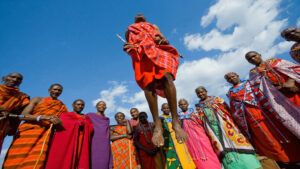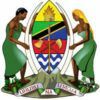Tanzanian Traditional Sports: A Blend of Culture and Physical Prowess
Job Overview

Tanzanian Traditional Sports: A Blend of Culture and Physical Prowess
Tanzanian Traditional Sports: A Blend of Culture and Physical Prowess
Nestled in the heart of East Africa, Tanzania is a nation rich in cultural diversity and heritage. This diversity is vividly reflected in its array of traditional sports, which are a testament to the country’s physical prowess and a profound expression of its cultural identity. Much like the diverse landscapes that range from the summit of Mount Kilimanjaro to the plains of the Serengeti, Tanzanian traditional sports encompass a variety of games deeply rooted in the nation’s history and societal values.
These traditional sports, from the strategic game of Mancala (Bao) to the adrenaline-pumping excitement of Ng’ombe (Bullfighting), have been woven into the fabric of Tanzanian life for centuries. They are more than mere games; they are rituals and festivities that strengthen community bonds, pass down values, and celebrate the rich tapestry of Tanzanian tribal cultures.
In a modern world where digital entertainment and global sports phenomena, for example online betting platforms like BetPava in Tanzania, are increasingly capturing the public’s attention, the significance of these traditional sports becomes even more profound. They stand as bastions of cultural preservation, offering a glimpse into the past and a pathway to understanding Tanzanian life.
The Roots of Traditional Tanzanian Sports
Historical Context
The origins of traditional sports in Tanzania are as old as the tribes and communities that practice them. These sports have evolved from ancient rituals, tribal ceremonies, and everyday life activities, turning into forms of recreation and competition. Rooted deeply in the cultural fabric of Tanzanian society, these games have been passed down through generations, embodying the history and traditions of the people.
Diversity of Traditional Sports
Tanzania, with its diverse tribes and cultures, boasts a variety of traditional sports. These range from strategy games like Mancala (Bao) to physically demanding activities like Ng’ombe (Bullfighting). Each sport has its unique set of rules and methods of play, reflecting the diversity of the Tanzanian landscape and its people.
Key Traditional Sports and Their Cultural Significance
Mancala (Bao)
Bao, a type of Mancala game, is one of Tanzania’s most intellectually challenging and culturally significant games. Played with a wooden board and seeds or stones, it is a game of strategy that requires deep thinking and planning. Bao is more than a pastime; it is a tool for teaching mathematics and strategy, often used to sharpen the minds of both young and old.
Ng’ombe (Bullfighting)
Unlike the Spanish version, Tanzanian bullfighting, known as Ng’ombe, is less about fighting the bull and more about showcasing the strength and bravery of the participants. Held in high regard, especially in regions like Tanga, Ng’ombe is a spectacle that draws large crowds and is a source of communal pride.
Woven Ball Games
Traditional ball games, often played with balls made from woven natural materials, are standard across various Tanzanian tribes. These games, resembling modern football or volleyball, are about physical prowess, teamwork, and community bonding. They are often played during festivals or communal gatherings, symbolizing unity and cooperation.
Cultural Meanings and Community Aspects
These traditional sports are imbued with cultural meanings and serve as a vital aspect of community life. They are occasions for gathering, celebrating, and upholding communal values. During festivals or important events, these games become focal points of celebration, drawing participants and spectators from different parts of the community.
The Role of Traditional Sports in Modern Tanzanian Society
Balancing Modern Influences
In contemporary Tanzania, traditional sports coexist with modern sports influences. While sports like football and basketball gain international attention, traditional sports remain vital in preserving cultural heritage. This balance is crucial in maintaining the uniqueness of Tanzanian culture while embracing global sports trends.
Community Cohesion and Intergenerational Bonding
Traditional sports continue to play a significant role in promoting community cohesion. They serve as communal activities where people of all ages come together, fostering a sense of belonging and unity. Furthermore, these sports are instrumental in intergenerational bonding, as older generations pass down knowledge and skills to the youth, ensuring the continuity of cultural practices.
Future Prospects and Potential
Promoting Tourism and Cultural Exchange
Traditional sports have the potential to become significant attractions for cultural tourism. By showcasing these sports in cultural festivals and events, Tanzania can offer unique experiences to tourists, different from typical wildlife safaris and beach holidays. This promotes cultural exchange and provides economic benefits to local communities.
Role of Media and Technology
The media and technology can play a crucial role in popularizing traditional sports. Documentaries, online platforms, and social media can be used to raise awareness and interest in these sports nationally and internationally. This digital exposure can help preserve these sports and make them accessible to a broader audience.
Integration into Broader Sports Landscape
Integrating traditional sports into the broader sports and educational curriculum can ensure their sustainability. Tanzania can nurture a new generation of participants and enthusiasts by including these sports in school programs and national sports events, keeping these cultural treasures alive.
Conclusion: Celebrating Tanzanian Traditional Sports as Cultural Pillars
As we reflect on the journey and essence of traditional sports in Tanzania, it becomes evident that these activities are far more than mere games or pastimes. They are vibrant threads woven into the fabric of Tanzanian culture, encapsulating the nation’s diverse heritage, values, and communal spirit. Traditional sports in Tanzania symbolize a rich cultural history, bridging the past with the present and future.
The future of these traditional sports hinges on the delicate balance between modernization and preservation. As Tanzania strides forward, embracing new trends and technologies, it is responsible for protecting and promoting these invaluable cultural treasures. The potential of traditional sports to contribute to cultural tourism, education, and national identity is immense.
In conclusion, traditional sports in Tanzania are more than historical relics; they are active, dynamic elements of contemporary society, offering lessons in unity, perseverance, and cultural pride. As custodians of this heritage, it is incumbent upon current and future generations to ensure that these sports survive and thrive, continuing to enrich Tanzania’s cultural landscape and standing as a testament to the nation’s rich and diverse cultural identity.


